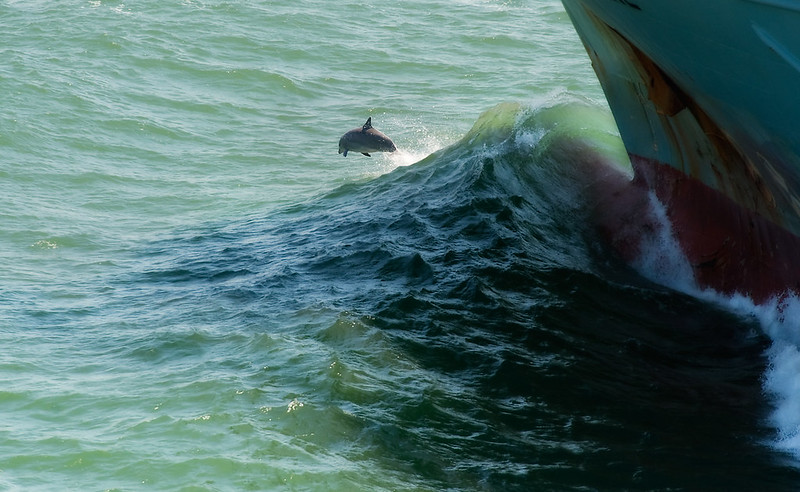Over 150 industry leaders and organisations call for decisive government action to fully decarbonise international shipping by 2050. The signatories, including companies like Maersk, Bureau Veritas, MSC Cruises, Hapag-Lloyd, Wärtsilä and the Port of Rotterdam, urge world leaders to deliver the policies needed to make zero-emission shipping the default choice by 2030.
‘Full decarbonisation of international shipping is urgent and achievable.’ This is the clear message from the 155 signatories, representing the entire maritime value chain, including shipping, cargo, energy, finance, ports, and infrastructure.
The shipping sector is already taking big steps to decarbonise. The industry is investing in various R&D and pilot projects, developing zero-emission vessels, new technology and fuel alternatives and assessing and disclosing the climate alignment of shipping-related activities. Now, the industry urges governments to take action to supercharge the transition.
The Call to Action comes in conjunction with the UN General Assembly and ahead of critical climate negotiations at COP26 in Glasgow this November. Industry players from around the world now call on governments to work together with the industry to ‘deliver the policies and investments needed to reach critical tipping points in decarbonising global supply chains and the global economy.’
Call to Action for Shipping Decarbonisation
Signatories of the Call to Action for Shipping Decarbonisation call on world leaders to:
- Commit to decarbonising international shipping by 2050 and deliver a clear and equitable implementation plan to achieve this when adopting the IMO GHG Strategy in 2023.
- Support industrial scale zero-emission shipping projects through national action, for instance by setting clear decarbonisation targets for domestic shipping and by providing incentives and support to first movers and broader deployment of zero-emission fuels and vessels.
- Deliver policy measures that will make zero-emission shipping the default choice by 2030, including meaningful market-based measures, taking effect by 2025 that can support the commercial deployment of zero emission vessels and fuels in international shipping.
The Call to Action for Shipping Decarbonisation has been developed by a multi-stakeholder taskforce convened by the Getting to Zero Coalition – a partnership between the Global Maritime Forum, the World Economic Forum, and Friends of Ocean Action.
Carbon levy
The Call to Action does not give any specific examples of what such policy measures would look like. The International Chamber of Shipping recently also called on governments to take steps to decarbonise shipping, but this organisation did present a policy measure in the form of a global carbon levy. It has already submitted a proposal for this with the UN.
Also read: International Chamber of Shipping proposes global carbon levy for ships
Picture by Louis Vest.








